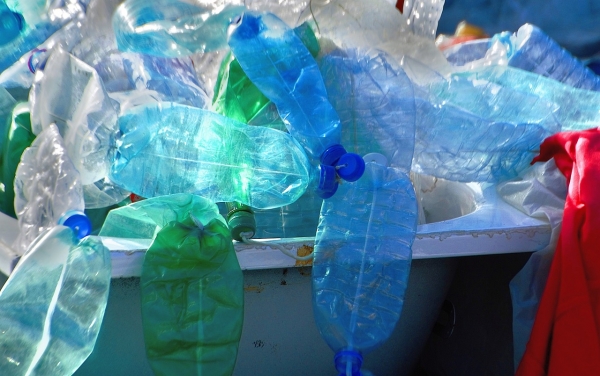Mountains of used plastic bottles get thrown away every day, but microbes could potentially tackle this problem. Now, researchers in ACS Central Science report that they’ve developed a plastic-eating E. coli that can efficiently turn polyethylene terephthalate (PET) waste into adipic acid, which is used to make nylon materials, drugs and fragrances.
Previously, a team of researchers including Stephen Wallace engineered a strain of E. coli to transform the main component in old PET bottles, terephthalic acid, into something tastier and more valuable: the vanilla flavor compound vanillin. At the same time, other researchers engineered microbes to metabolize terephthalic acid into a variety of small molecules, including short acids. So, Wallace and a new team from the University of Edinburgh wanted to expand E. coli’s biosynthetic pathways to include the metabolism of terephthalic acid into adipic acid, a feedstock for many everyday products that’s typically generated from fossil fuels using energy-intensive processes.
Read more at American Chemical Society
Photo Credit: VIVIANE6276 via Pixabay


